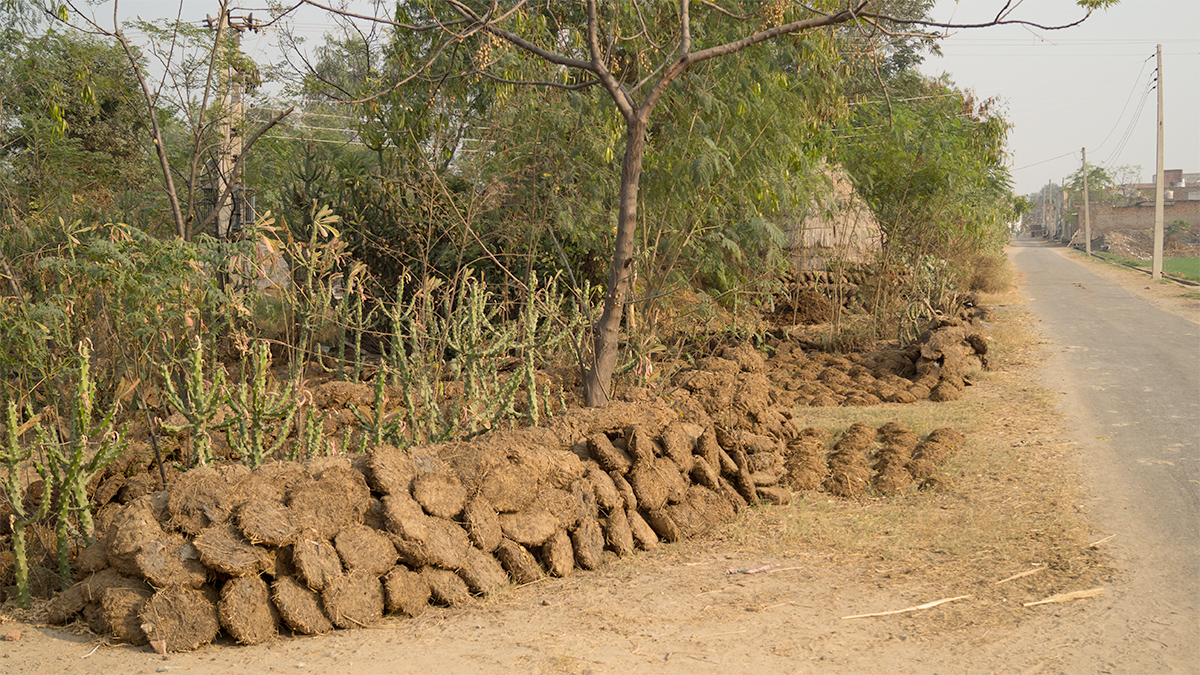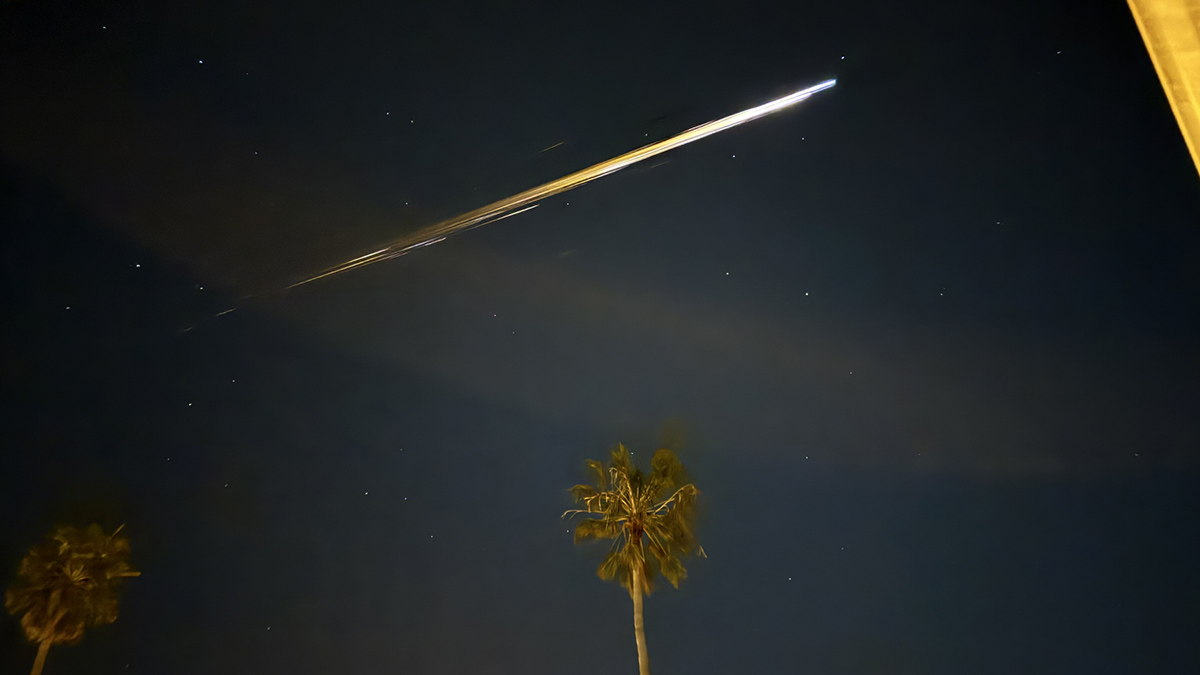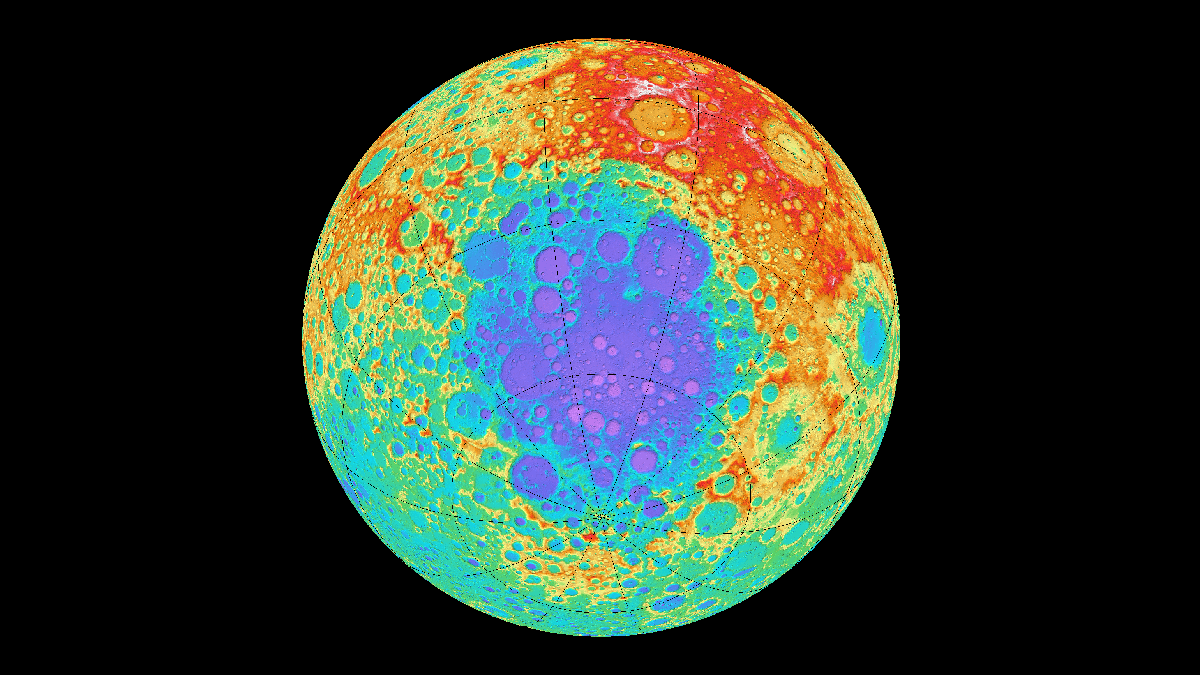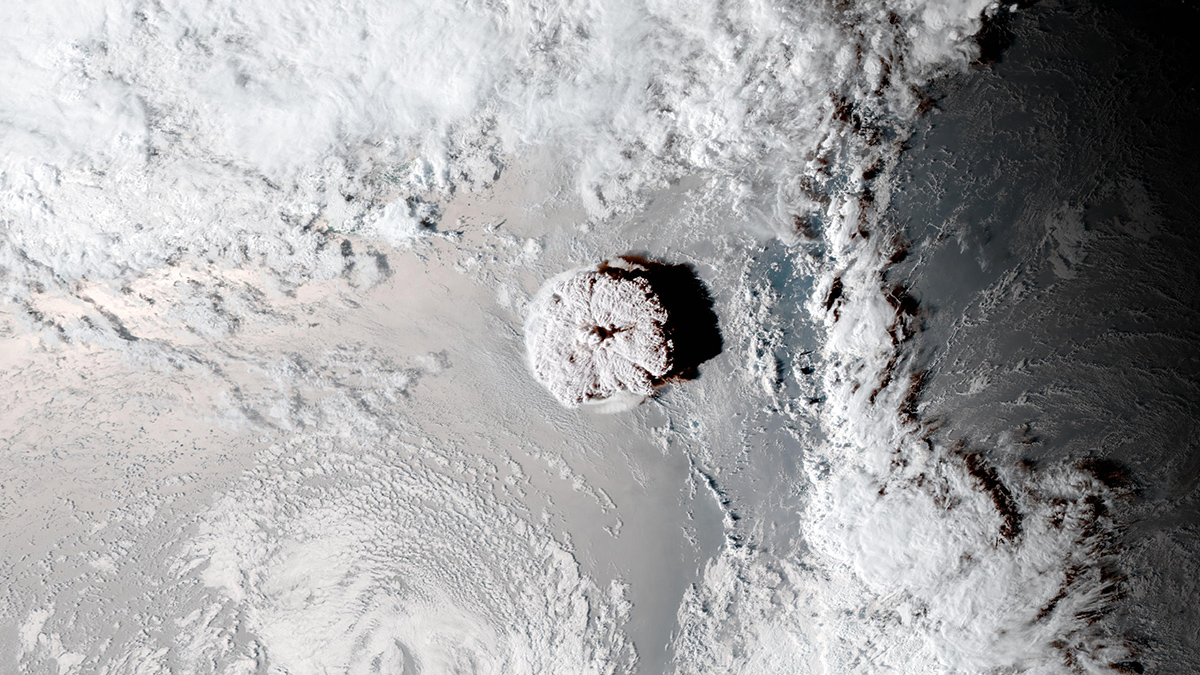The strange blend of surface chemistry on Nix and Hydra raises big question about the evolution of the Pluto system.
News
The Survival of Arctic Sea Ice May Depend on Its Travel Routes
Researchers find that the motions of ice parcels determine which ones survive the annual summer melt.
Burning Cow Dung Emits an Inordinate Amount of Air Pollution in India
Dried cow dung, a main source of household cooking fuel for many in rural India, releases more particulate matter across the country than wood and other biofuels.
Seismometers Track Atmospheric Shock Waves from Incoming Space Debris
A Chinese spacecraft that burned up high over Los Angeles created a sonic trail detected by ground-based sensors.
Meteorite Sheds Light on the Moon’s Impact History
Analysis has revealed the South Pole–Aitken basin is significantly older than other impact basins on the Moon, a finding that has implications for the evolution of the early solar system.
Straightening Out Uranus’s Magnetosphere
New analysis of Voyager 2 observations shows that the craft arrived amid gusty solar wind, muddying our ideas about the giant planet.
Geoscientists Demystify Baseball’s Magic Mud
Taking baseball’s mysterious Rubbing Mud into the lab revealed no magic ingredients—but plenty of useful natural properties from geomaterials.
Here’s How the Hunga Tonga Eruption Sounded
New Zealanders’ experiences during the Hunga Volcano’s eruption match seismic monitoring data.
Explore Washington, D.C.’s Science Scene
Earth and space science hot spots are sprinkled throughout the D.C. metro region.
Planetary Perturbations May Strengthen Gaia
Large-scale disruptions to life may ultimately increase ecological complexity over geologic timescales, though the risk of extinction always looms.










